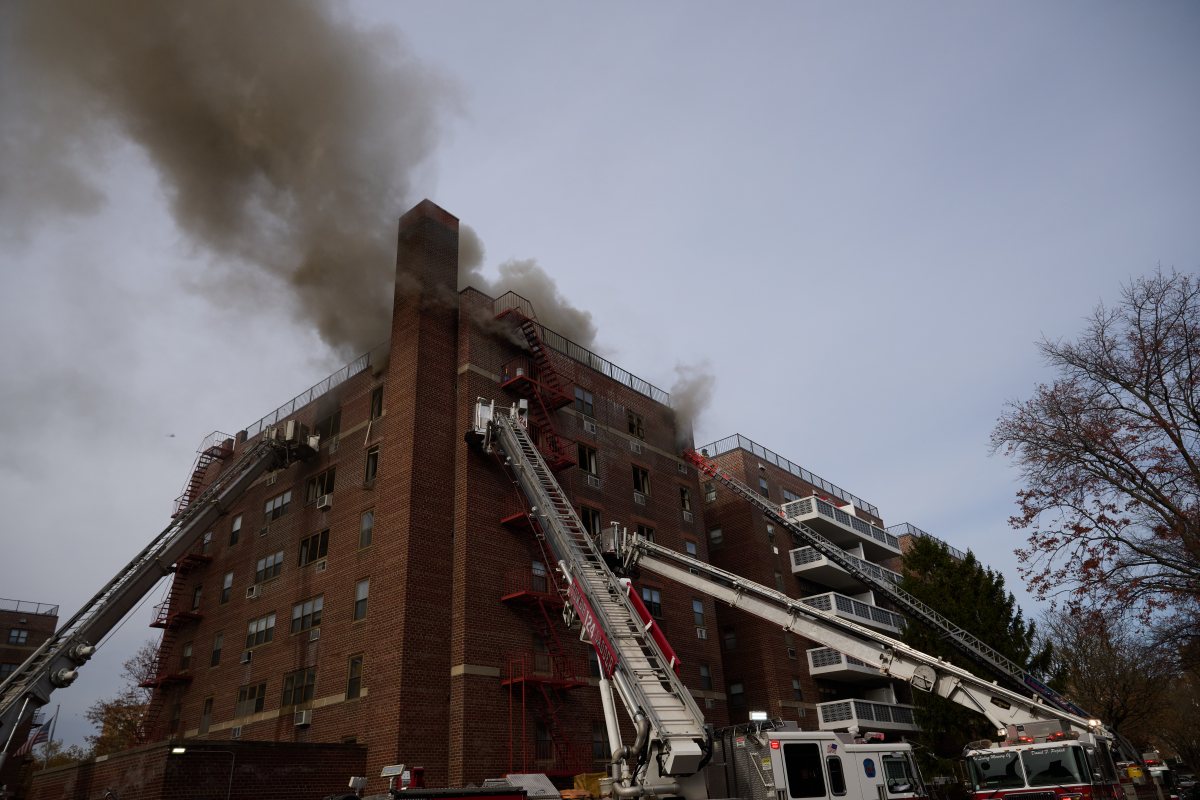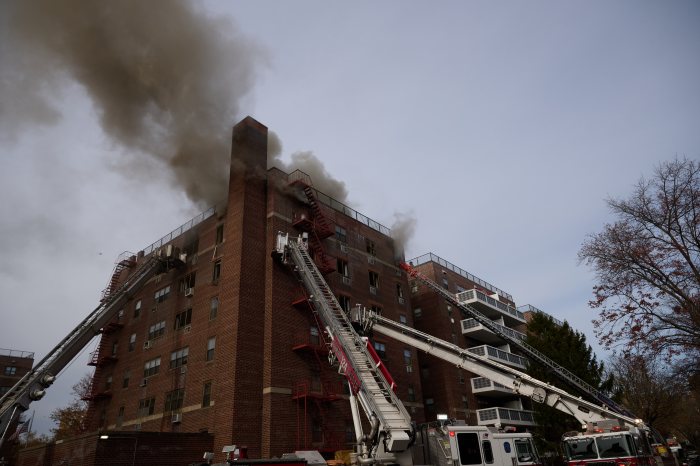By Aline Reynolds
Gregory Russo says his life has been on a downward spiral since a fire engulfed his apartment building at 68 Thompson St. on Aug. 5
The 48-year-old Soho resident was displaced from his home, as were all the building’s residents, and he has been living at a friend’s place in the Bronx away from his wife and 3-year-old daughter. The family’s computer, clothes and other belongings were all destroyed in the fire.
Two weeks later, Russo lost his part-time job, forcing him to live on a small monthly disability stipend.
Losing the apartment he’s lived in for his whole life, even temporarily, “is like losing a family member to me,” Russo said. “I put my whole life into that apartment — so much money and effort, ’cause I thought I’d always be there.”
He is one of a dozen of the building’s rent-regulated or rent-controlled tenants who are petitioning their landlord, Joseph Nabavi of Direct Management Corp., to expedite repairs and not alter the basic layout of the tenants’ apartments.
The tenants filed a housing part action in Civil Court on Thurs., Sept. 29, arguing their right to “have their apartments returned to them in the same configuration and size, and with the same fixtures, appliances and amenities as were afforded to them before the fire.”
Their attorney, Ronald Languedoc, said it could be one to two years before the building’s city-issued vacate order is lifted and the tenants can move back in.
“As a practical matter, everyone in a situation like this understands repairs are not going to be done in 24 hours,” said Languedoc. The owners, he explained, have to file insurance claims and get the appropriate permits to complete the work.
“We’d say, Fine,” Languedoc said, “but show us your timetable.”
Landlord Nabavi did not return repeated calls for comment. According to a spokesperson from the city Department of Housing Preservation and Development, the building currently has 33 violations classified under category “C,” or “immediately hazardous,” at least one-third of which are related to the Aug. 5 fire.
The petition’s purpose is to underscore the tenants’ urgent wish to move back into their homes at the earliest possible date, said Kathie Cammann, president of the building’s newly formed tenants association.
“This is really nothing but to get the courts on our side to do what the owner should be doing anyway, which is to move on to refurbishing the building,” said Cammann.
“We know what he’s capable of doing, which is anything. If he’s not able to do that, maybe then we have a lawsuit on our hands.”
Although Direct Management lacks Buildings Department permits to make any substantive changes to the building’s interior, residents claim to have witnessed demolition work as they were packing up their belongings before moving out last month.
One resident, who requested anonymity for fear of retaliation by the landlord, alleges he saw walls being taken down two to three weeks after the fire. He and other residents are worried about their exposure to asbestos and other toxins during that time.
“It was difficult to breathe,” he recalled. He has a doctor’s visit scheduled to check on a persistent cough he developed last month.
In an Aug. 23 e-mail to Councilmember Margaret Chin’s Office, Harriet Cloud, another 68 Thompson St. resident, said tenants were wearing handkerchiefs and masks during the evacuation period.
“Some were wearing nothing,” Cloud wrote, “and we had no idea what in the world we were breathing during all of these days of this removal process.”
According to Cloud, the building has been stripped down to its basic structure.
“It is understandable that it is a priority to verify the structural soundness of the building, A.S.A.P., but they need to do this in a legal manner following the standard procedures that protect the health and welfare of the public,” she wrote in the e-mail.
Meanwhile, some of the displaced tenants are still waiting to be reimbursed for their August rent.
After a discussion with Direct Management, Kelly Magee, Chin’s communications director, assured the tenants they would be remunerated by the second week of October — once the landlord has been authorized by his insurance company to disburse the funds.
Some tenants, however, contend they shouldn’t have to wait that long. The anonymous tenant, who is owed about $2,000 in reimbursement, said he had to borrow money from a friend to pay his September rent for a small Upper West Side apartment he’s temporarily living in.
“I don’t think I’m being treated fairly,” the tenant said. “I always pay my rent on time, and I’m not getting the response I should.”



































